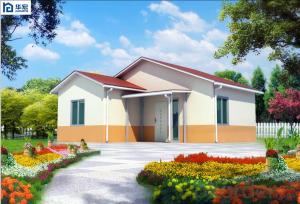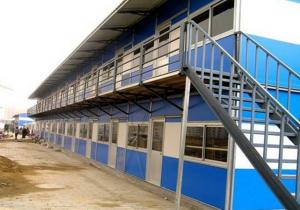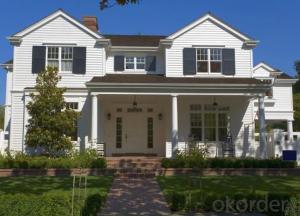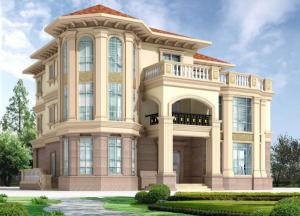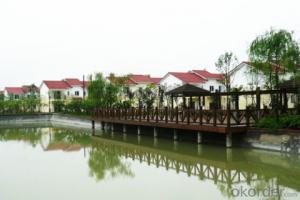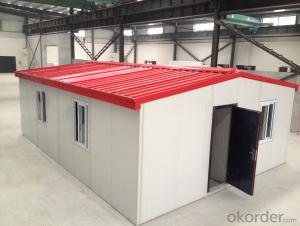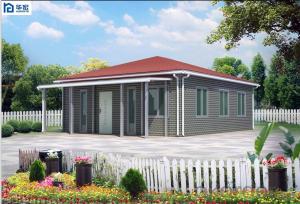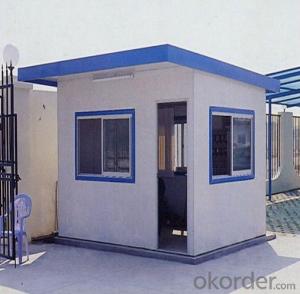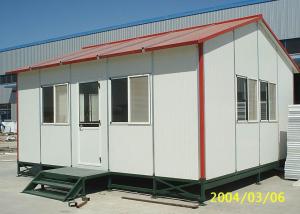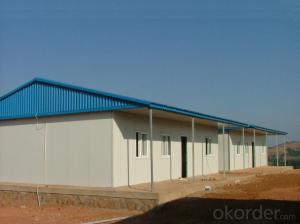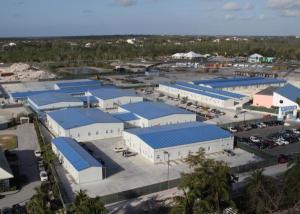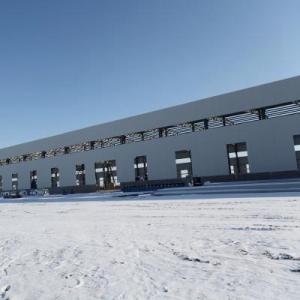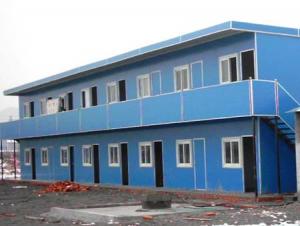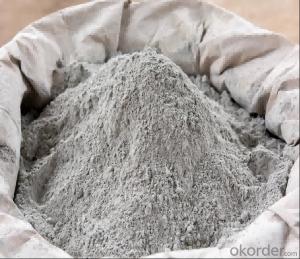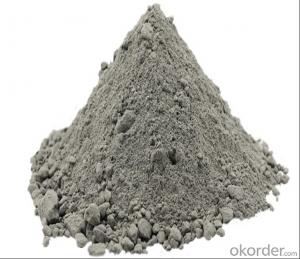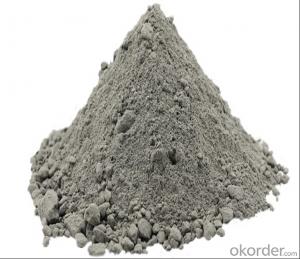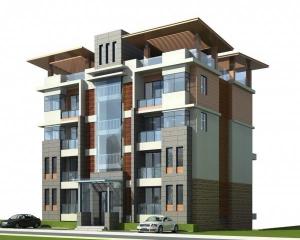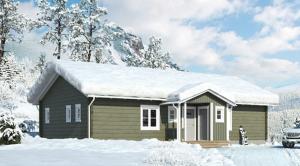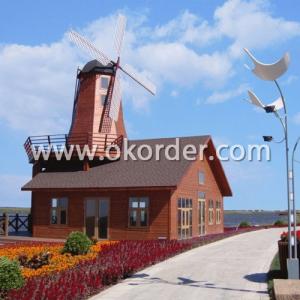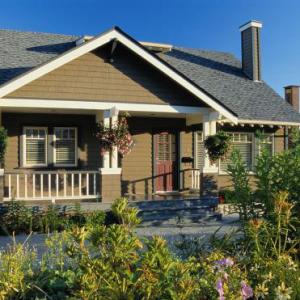Good Quality Cement House
- Loading Port:
- China Main Port
- Payment Terms:
- TT OR LC
- Min Order Qty:
- -
- Supply Capability:
- -
OKorder Service Pledge
OKorder Financial Service
You Might Also Like
More questions:
1, What's your Payment term:
30% deposit by TT, 70% balance before loading container by TT; 100% LC at sight(total payment over 100,000USD);
2, How about Shipping:
We use 20 feet container and 40HQ container to ship the goods; Usually one 20 feet container can load about 50-60 square meters' house, 40HQ container can load about 120-140 square meters's house.
3, How to become your agent in our country:
First, you can make a report about your market, include the the rules and laws of prefab house, popular house models, target price, and potential sales quantity.
Second, you must place a trial order to act as the display.
Third, after finishing the sample house and getting the local people's feedback, we will give you the agent right in one area with limited time.
Fourth, Please note that we already have agent in Mumbai City India; Marshall Islands, Trinidad and Tobago.
4, Can you help me to purchase other things like furniture or appliance:
Because the customs law, our company can only export prefab house, so we just can purchase very little matched kitchen and bathroom facilities for you in consideration of customs clearance.
5, Can you send workers to help me build house.
Considering the labor cost, safety and visa issues, we suggest to send one or two engineers to guide and train your staffs. You must provide air tickets, hotel, and meal, and 100USD per day for engineer salary.
- Q:Are container houses energy-efficient?
- Yes, container houses can be energy-efficient. They are designed to provide good insulation, reducing the need for heating and cooling. Additionally, container houses can incorporate energy-efficient systems such as solar panels, LED lighting, and energy-efficient appliances, further reducing energy consumption.
- Q:Can container houses be designed to have a home gym or fitness area?
- Yes, container houses can certainly be designed to include a home gym or fitness area. With proper planning and customization, the interior layout of a container house can be optimized to accommodate fitness equipment, such as exercise machines, weights, or yoga mats. Additionally, the design can incorporate features like large windows for natural light, proper ventilation, and soundproofing to create an ideal space for workouts.
- Q:Can container houses be financed?
- Indeed, it is possible to obtain financing for container houses. Numerous financial institutions, including banks and credit unions, extend loans tailored to the construction or acquisition of container houses. These loans resemble conventional home loans, albeit with potential prerequisites concerning the utilization of shipping containers as construction materials. Moreover, certain container house manufacturers or builders may provide financing alternatives directly to their clientele. Conducting thorough research and comparing diverse financing options is vital to identifying the most favorable terms and rates that align with individual requirements.
- Q:Are container houses suitable for outdoor education or wilderness retreats?
- Indeed, container houses prove to be an ideal choice for outdoor education or wilderness retreats. Their adaptability and ease of transportation allows for convenient set-up in remote locations, providing participants with a comfortable and functional living space. With their ability to withstand harsh weather conditions, container houses are specifically designed for wilderness environments. Constructed from durable materials, they can endure extreme temperatures, heavy rain, and strong winds, ensuring the safety and comfort of those residing within, even in rugged and distant areas. Moreover, container houses can be tailored to cater to the specific requirements of outdoor education or retreat programs. Essential amenities like bathrooms, kitchens, and sleeping areas can be incorporated, while the interior can be designed to create a warm and inviting atmosphere, encouraging relaxation and connection with nature. Additionally, container houses are environmentally friendly and sustainable. Many are crafted from recycled shipping containers, reducing waste and promoting eco-consciousness. The option of equipping them with renewable energy sources, such as solar panels, further minimizes their environmental impact. Furthermore, container houses offer flexibility in terms of expansion or modification to accommodate varying group sizes or program demands. They can be interconnected to form larger living spaces or divided into smaller units for individual accommodations. This versatility allows for scalability and adaptability, making container houses suitable for a wide range of outdoor education or retreat programs. In conclusion, container houses present a practical and suitable choice for outdoor education or wilderness retreats. Their durability, versatility, sustainability, and comfort make them an excellent option for those seeking to provide a distinctive and unforgettable experience in nature.
- Q:Are container houses comfortable to live in?
- Yes, container houses can be comfortable to live in. While they may have some limitations compared to traditional homes, such as limited space and insulation challenges, with the right design and modifications, container houses can provide a comfortable living environment. One advantage of container houses is their versatility. They can be customized and modified to suit individual needs and preferences. From the layout and interior design to the addition of windows, doors, and insulation, container houses can be designed to maximize comfort and functionality. Furthermore, container houses can be equipped with all the necessary amenities for a comfortable living experience. Plumbing, electricity, heating, and cooling systems can all be installed to provide the same level of convenience as a traditional home. Additionally, container houses can be fitted with various sustainable features, such as solar panels and rainwater harvesting systems, making them eco-friendly and cost-efficient. It's important to note that insulation is a key factor in ensuring comfort in container houses. Proper insulation can regulate temperature, reduce noise, and prevent condensation. Adding insulation materials like foam or spray insulation can significantly improve the comfort level of container houses. Lastly, container houses offer unique benefits that can enhance the living experience. They are often more affordable than traditional homes, making homeownership more accessible. Additionally, their modular nature allows for easy expansion or relocation if needed, providing flexibility and adaptability. In conclusion, while container houses may have some limitations, with the right modifications and design choices, they can be comfortable and enjoyable to live in. These houses offer versatility, customization options, and the potential for sustainable living, making them a viable and comfortable alternative to traditional homes.
- Q:Are container houses suitable for guest or in-law accommodations?
- Yes, container houses can be suitable for guest or in-law accommodations. Container houses have become increasingly popular due to their affordability, durability, and versatility. They can be easily customized and modified to create comfortable and functional living spaces for guests or in-laws. One of the main advantages of container houses is their portability. They can be transported and installed in various locations, making them ideal for accommodating guests or in-laws on your property. Additionally, container houses can be easily expanded or connected to create larger living spaces if needed. Container houses can also provide a unique and modern aesthetic, which can be appealing for guests or in-laws looking for a distinctive living experience. With proper insulation, ventilation, and interior design, container houses can offer a comfortable and inviting environment for guests or in-laws to stay in. Furthermore, container houses are typically more cost-effective compared to traditional construction methods. They require less time and labor to build, resulting in lower overall costs. This can be advantageous when considering guest or in-law accommodations, as it allows for a more budget-friendly option. However, it is important to consider certain factors before choosing container houses for guest or in-law accommodations. These include local building regulations, zoning restrictions, and the need for proper amenities such as plumbing and electricity. Additionally, privacy and noise control should be taken into account when designing the layout of the container house. Overall, container houses can be a suitable and practical option for guest or in-law accommodations. With proper planning, customization, and attention to details, container houses can provide a comfortable and attractive living space for guests or in-laws while offering the benefits of affordability and versatility.
- Q:Can container houses be easily expanded in the future?
- Yes, container houses can be easily expanded in the future. One of the main advantages of using shipping containers as building materials is their modular nature. Containers can be stacked or joined together to create larger living spaces, allowing for easy expansion. Additionally, containers can be easily modified and adapted to fit the specific needs of the homeowner. By adding more containers, walls, or cutting out sections, the size and layout of the house can be adjusted according to the requirements of the occupants. This flexibility makes container houses an excellent option for those who anticipate future expansion or changes in their living arrangements.
- Q:Are container houses noisy?
- Container houses can be noisier than traditional houses due to the materials used, such as metal, which may not provide as much sound insulation. However, with proper insulation and design considerations, container houses can be made to be just as quiet as any other house.
- Q:Are container houses prone to pests or insects?
- The susceptibility of container houses to pests or insects varies depending on multiple factors. Firstly, the location of the container house plays a pivotal role. If it is situated in an area abundant with pests or insects, the chances of encountering such issues are higher. Secondly, the condition of the container itself is crucial. Should there be gaps, cracks, or other openings, pests may infiltrate. Nevertheless, by implementing adequate insulation, sealing, and regular maintenance, the risk of pests or insects entering can be significantly diminished. Furthermore, the lifestyle and habits of the occupants also impact the likelihood of pest infestations. Regular cleaning, proper waste management, and maintaining an uncluttered environment are essential practices that aid in deterring pests from being attracted to the container house. It's important to note that container houses are not inherently more susceptible to pests or insects when compared to traditional houses. In fact, due to their construction material, typically steel, container houses may be less vulnerable to certain pests, such as termites, which can cause extensive damage to wooden structures. To ensure a pest-free environment in a container house, it is advisable to seek guidance from a pest control professional who can offer tailored recommendations based on the location, climate, and potential pest risks. By taking proper precautions and proactive measures, container houses can be just as free from pests as any other type of dwelling.
- Q:What is the cost of a container house?
- The cost of a container house can vary depending on several factors such as the size, design, location, and additional features. On average, a basic container house can cost anywhere from $20,000 to $50,000. However, this estimate may increase if you opt for larger container sizes, customized designs, high-end finishes, or additional amenities such as plumbing, electrical systems, and insulation. It is also important to consider the cost of permits, land purchase or rental, transportation, and site preparation when calculating the total cost of a container house. Ultimately, it is recommended to consult with professionals or contractors who specialize in container homes to get a more accurate estimate based on your specific requirements and preferences.
1. Manufacturer Overview |
|
|---|---|
| Location | |
| Year Established | |
| Annual Output Value | |
| Main Markets | |
| Company Certifications | |
2. Manufacturer Certificates |
|
|---|---|
| a) Certification Name | |
| Range | |
| Reference | |
| Validity Period | |
3. Manufacturer Capability |
|
|---|---|
| a)Trade Capacity | |
| Nearest Port | |
| Export Percentage | |
| No.of Employees in Trade Department | |
| Language Spoken: | |
| b)Factory Information | |
| Factory Size: | |
| No. of Production Lines | |
| Contract Manufacturing | |
| Product Price Range | |
Send your message to us
Good Quality Cement House
- Loading Port:
- China Main Port
- Payment Terms:
- TT OR LC
- Min Order Qty:
- -
- Supply Capability:
- -
OKorder Service Pledge
OKorder Financial Service
Similar products
New products
Hot products
